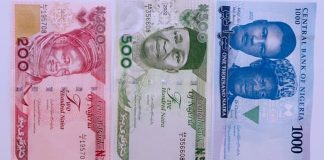Data from the Nigerian Stock Exchange, NSE, as of December 31, 2015, showed that the nation’s stock market lost heavily in key indicators in 2015.
Precisely, its Market Capitalization, which opened trading for the year at N11.478 trillion, lost N1.63 trillion to close the year’s business at N9.851 trillion.
Likewise, the All- Share Index slid by about 17.36 per cent to close trading at 28,642.25 points, as against the opening index of 34,657.15 points.
Reviewing the stock market performance for 2015, the NSE Chief Executive Officer Oscar Onyema, explained that the significant plunge was as a result of continued depreciation of the naira against the dollar and uncertainty around the direction of economic policies, which fueled already prevalent bearish sentiments in the Nigerian capital market.
The data further showed that NSE Banking Index was the worst hit, plunging 23.6 per cent, followed closely by the NSE 30 Index and NSE Main Board Index, (both down 17.6 per cent); showing that all the NSE market indices performed poorly, relative to their 2014 performance, except for NSE Industrial Index which saw an uptick of 1.3 per cent.
The market for new equity listings was flat throughout the year, with only four new equity listings, one on the Main Board, and three ETFs. In contrast, five companies were delisted in 2015, bringing the number of listed companies and number of listed equities to 184 and 190, respectively.
Turnover volume declined through 2015 by 17 per cent, with equities turnover declining 28.8 per cent to N952.8 billion ($4.8 billion), and a foreign and local participation rate of 54.24 per cent and 45.76 per cent, respectively, in total value traded.
In the NSE bond market, market capitalisation jumped by 32.7 per cent to N7.14 trillion ($35.82 billion) as corporates took to the debt market to raise a total of N112.0 billion ($562.0 million) in 7 new listings; majority from financial services sector.
The Federal and State Governments raised N76.5 billion ($383.7 million) and N35.8 billion ($179.6 million) in debt capital, respectively.












